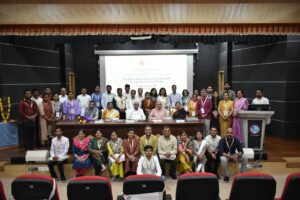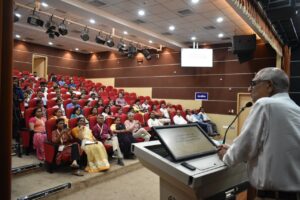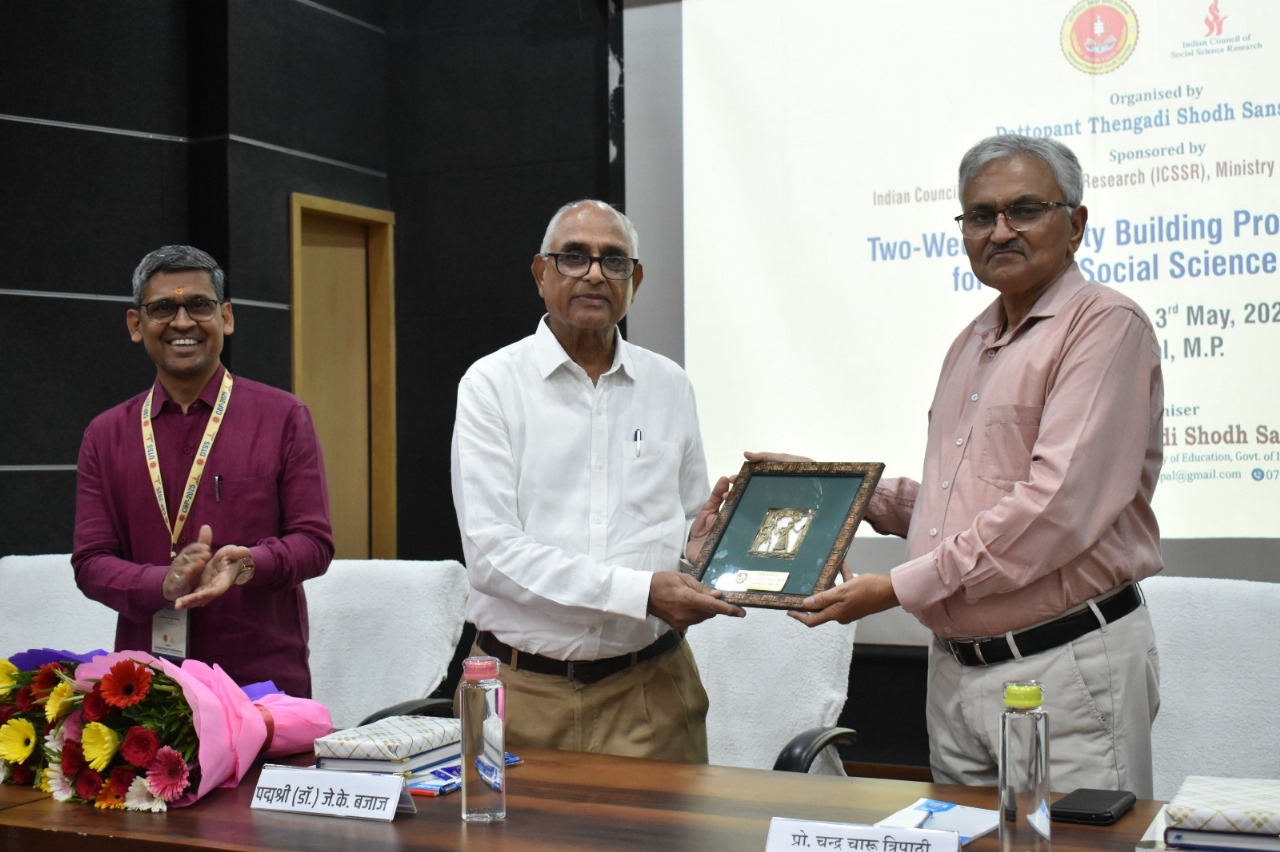CNN Central News & Network–ITDC India Epress/ITDC News Bhopal: Before British rule, every Indian village functioned as a self-reliant and self-governing unit. All essential systems—education, security, healthcare, trade, and agriculture—were managed within the village itself. This structure is evidenced by case studies of the villages of Ullavoor and Kundrattur in Madras. This was stated by Padma Shri sociologist Dr. Jatinder Kumar Bajaj during a two-week capacity-building program organized by the Dattopant Thengadi Research Institute.

The program was sponsored by ICSSR, where Dr. Bajaj addressed young faculty members on the topics “Indian Policy Before the British” and “Social Science Research in the Indian Context.” He noted that India’s traditional village system was founded on the principles of dharma (duty), justice, and equality. Even British surveys confirmed that every village was a self-governing entity.
During the session, Dr. Bajaj emphasized that solutions to current societal problems are hidden within our civilizational texts and literature. He urged scholars to conduct research from an Indian perspective, moving away from colonial mindsets to understand the nuances of our history.

Also present on the occasion were NITTTR Director Chandra Charu Tripathi, program coordinator Alpana Trivedi, and institute director Mukesh Mishra. The session underscored the need for research on the history, culture, and social structure of rural India.
#IndianVillages #DrBajaj #PadmaShri #SelfGovernance #PreBritishIndia #IndianHistory #RuralIndia #DecentralizedIndia #ColonialImpact #IndiaBeforeBritish







